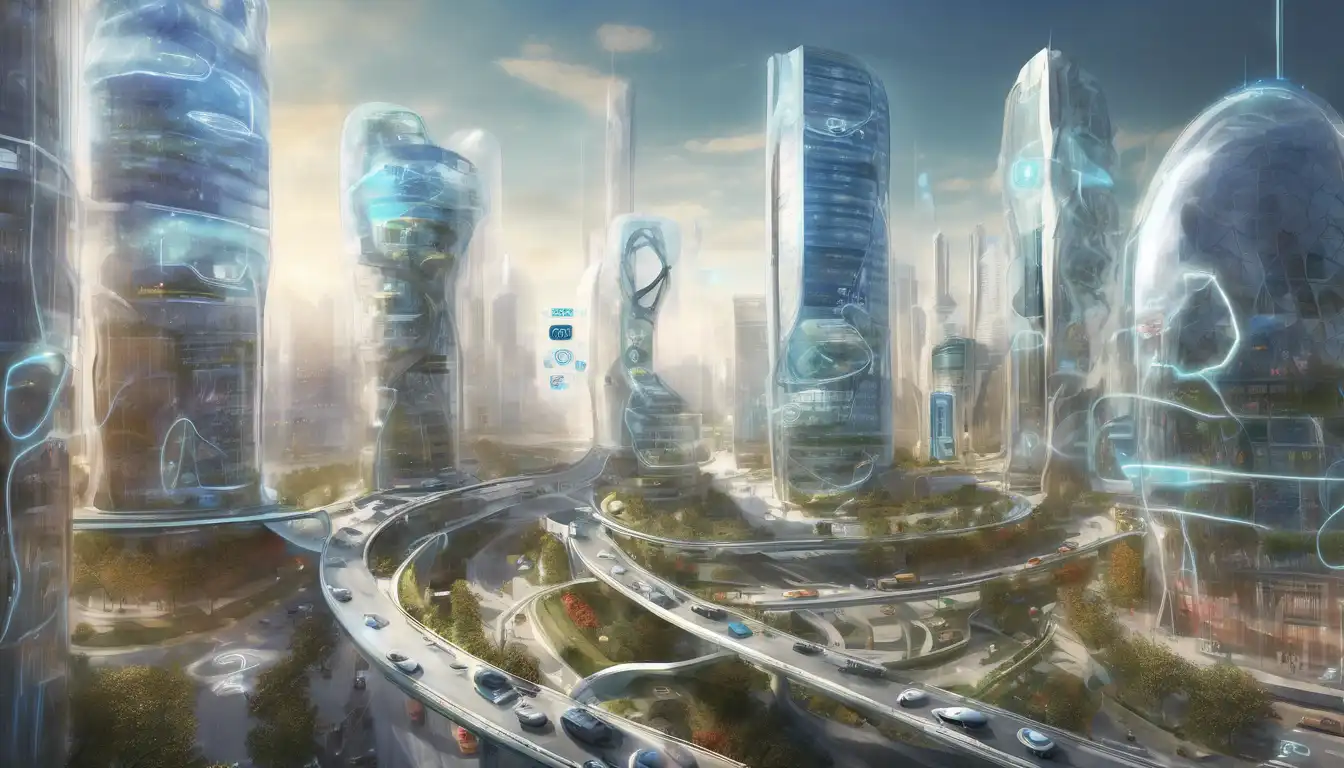The Role of IoT in Shaping Smart Cities
The Internet of Things (IoT) is revolutionizing the way cities operate, making them smarter, more efficient, and more sustainable. By connecting devices, vehicles, and infrastructure to the internet, cities can collect and analyze data to improve services and the quality of life for their residents. This article delves into the future of IoT in smart cities, exploring its potential to transform urban living.
Understanding IoT and Smart Cities
IoT refers to the network of physical objects embedded with sensors, software, and other technologies to connect and exchange data with other devices and systems over the internet. Smart cities leverage IoT to enhance urban services such as transportation, energy, and waste management, making cities more livable and responsive.
Key Benefits of IoT in Smart Cities
- Improved Traffic Management: IoT enables real-time traffic monitoring, reducing congestion and improving commute times.
- Energy Efficiency: Smart grids and IoT devices optimize energy use, lowering costs and environmental impact.
- Enhanced Public Safety: IoT technologies like surveillance cameras and emergency response systems make cities safer.
- Waste Management: Smart bins and IoT sensors streamline waste collection, promoting cleanliness and sustainability.
Challenges and Solutions
Despite its benefits, the integration of IoT in smart cities faces challenges such as privacy concerns, cybersecurity risks, and high implementation costs. Addressing these issues requires robust security measures, public-private partnerships, and innovative financing models.
The Future Outlook
The future of IoT in smart cities is bright, with advancements in AI, 5G, and edge computing driving further innovation. As cities continue to grow, IoT will play a pivotal role in ensuring they are sustainable, efficient, and inclusive.
For more insights into how technology is transforming urban environments, check out our article on The Role of AI in Urban Planning.
Conclusion
The integration of IoT into smart cities represents a significant leap forward in urban development. By harnessing the power of connected devices, cities can address pressing challenges, improve services, and enhance the quality of life for their residents. The journey towards fully realized smart cities is complex, but the potential benefits make it a worthwhile endeavor.
